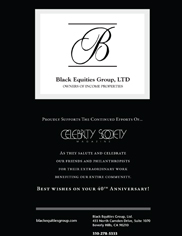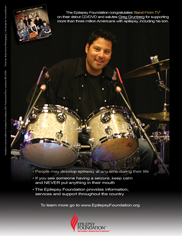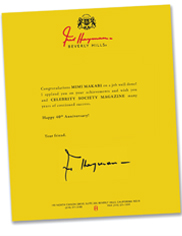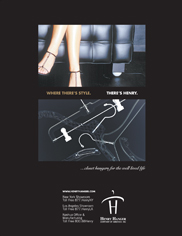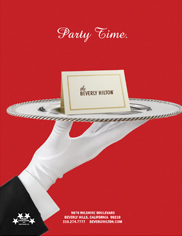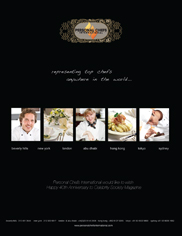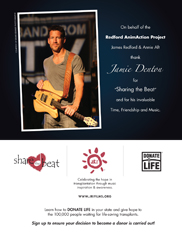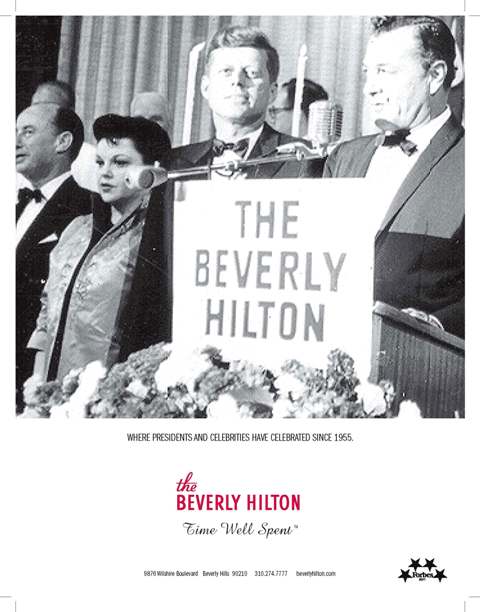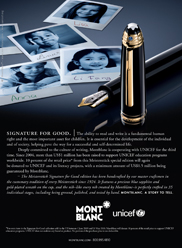
Archived // Philanthropist Spotlight

Marion Anderson
The True Mother of Philanthropy
By: Mimi Makabi
The True Mother of Philanthropy
By: Mimi Makabi
Despite their expected or unexpected roles in society, women have always had a significant place and influence in all facets of life. They are our mothers who nurture us when we are young, and care for us when we are sick. They are our sisters who hold us when we are crying or motivate us when we are feeling down. No matter who you are, there has been or is a woman who has cared for you at some point in your life. While most women spend their time caring and loving the special people in their lives, some women go a step beyond this. One exceptional woman, who has done just that, is Marion Anderson.
As we were looking for a powerful woman for our ‘Philanthropist Spotlight’, we were looking for a someone who is not just aspirational, but one who is up there doing the work—who is inspirational and is truly a role model for other women. Marion Anderson is a leader who has advanced and transformed our community with sheer generosity and sincere dedication. She lives a life by example and is a strong believer in the importance of giving back to the community. She is a woman who has made a heartfelt commitment to the cause of children’s health and well being for well over several decades. She has earned great respect in the community for her many diverse accomplishments and outstanding contributions. More importantly, she has rightfully earned and distinguished herself a role—one we like to call…‘The True Mother of Philanthropy’.
As the wife of successful businessman, John E. Anderson (the man behind Topa Properties, Ltd., and the principal benefactor of the prestigious Anderson School of Management at UCLA), Anderson credits her husband for interesting her in the art of giving. “I didn’t get involved in philanthropy, really, until my husband and I got married. My husband was always a philanthropist and very interested in that. Early on, I got involved in a cause that supported under privileged children. I really began to learn about it as much as I possibly could—and realized how rewarding it was to be able to help others and to give to others,” she said.
Still, Anderson admits philanthropy isn't a natural endeavor and rather a learned practice. She explains, “I don’t think giving comes naturally. I think it’s a learned process. We are not born with the feeling of wanting to help and wanting to do—because it is the other way around. When you are a child, it’s all about you, and receiving and taking. To me, it is a learning process as we get older—and that is a responsibility.”
As we were looking for a powerful woman for our ‘Philanthropist Spotlight’, we were looking for a someone who is not just aspirational, but one who is up there doing the work—who is inspirational and is truly a role model for other women. Marion Anderson is a leader who has advanced and transformed our community with sheer generosity and sincere dedication. She lives a life by example and is a strong believer in the importance of giving back to the community. She is a woman who has made a heartfelt commitment to the cause of children’s health and well being for well over several decades. She has earned great respect in the community for her many diverse accomplishments and outstanding contributions. More importantly, she has rightfully earned and distinguished herself a role—one we like to call…‘The True Mother of Philanthropy’.
As the wife of successful businessman, John E. Anderson (the man behind Topa Properties, Ltd., and the principal benefactor of the prestigious Anderson School of Management at UCLA), Anderson credits her husband for interesting her in the art of giving. “I didn’t get involved in philanthropy, really, until my husband and I got married. My husband was always a philanthropist and very interested in that. Early on, I got involved in a cause that supported under privileged children. I really began to learn about it as much as I possibly could—and realized how rewarding it was to be able to help others and to give to others,” she said.
Still, Anderson admits philanthropy isn't a natural endeavor and rather a learned practice. She explains, “I don’t think giving comes naturally. I think it’s a learned process. We are not born with the feeling of wanting to help and wanting to do—because it is the other way around. When you are a child, it’s all about you, and receiving and taking. To me, it is a learning process as we get older—and that is a responsibility.”
PAST ISSUES // Philanthropist Spotlight
©2011 CELEBRITY SOCIETY
9606 SANTA MONICA BOULEVARD | THIRD FLOOR | BEVERLY HILLS, CALIFORNIA 90210
CONTACT@CELEBRITYSOCIETY.COM | 310.859.6654
9606 SANTA MONICA BOULEVARD | THIRD FLOOR | BEVERLY HILLS, CALIFORNIA 90210
CONTACT@CELEBRITYSOCIETY.COM | 310.859.6654




